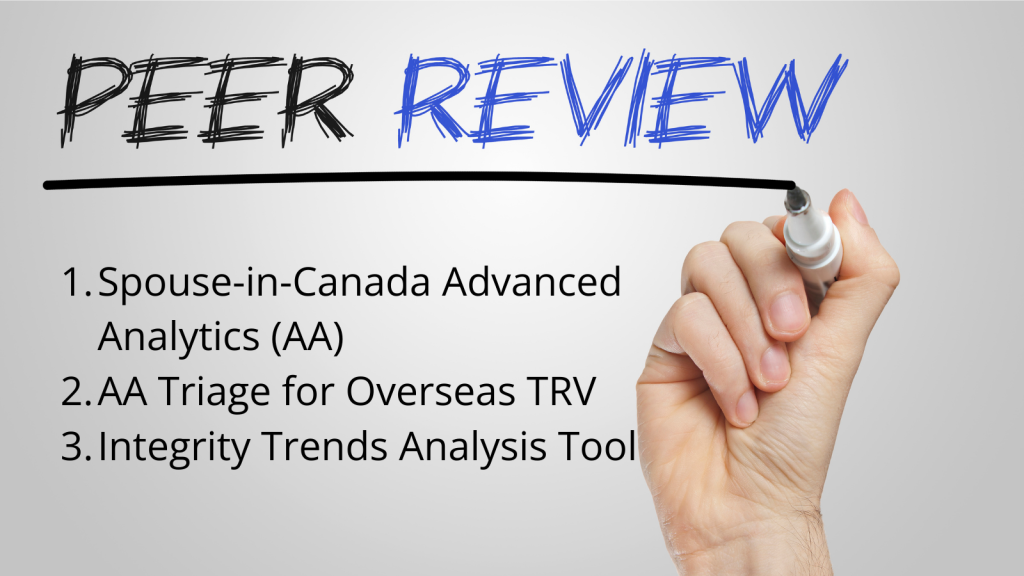
Filling in Three Missing Peer Reviews for IRCC’s Algorithmic Impact Assessments
As a public service, and transparently because I need to also refer to these in my own work in the area, I am sharing three
Award-Winning Canadian Immigration and Refugee Law and Commentary Blog

As a public service, and transparently because I need to also refer to these in my own work in the area, I am sharing three
Slow down my friend I see that mind moving at a million miles an hour The chip on the shoulder – the connection to the
First week officially in the books. I look around at my office, out at Victory Square through one clear and one not so clear glass
I realize I am writing this piece on the coattails of two of my incredible mentors who have done so earlier this year. Yet, with
The December 2016 changes to the spousal sponsorship process has (to-date) served as a double-edge sword. While applications for many have sped up, for others,
VIB Readers: Without sounding like a broken record, the past few months have been busy with so much happening that unfortunately writing has taken an
Hi there! My name is Katherine Akladios and I am a fourth year Religious Studies student at the University of British Columbia. I had the
Will Tao is an Award-Winning Canadian Immigration and Refugee Lawyer, Writer, and Policy Advisor based in Vancouver. Vancouver Immigration Blog is a public legal resource and social commentary.
he/his/him
Acknowledges that he lives and works on the traditional, unceded territories of the Coast Salish peoples – sḵwx̱wú7mesh (Squamish), sel̓íl̓witulh (Tsleil-Waututh), and xʷməθkʷəy̓əm (Musqueam) nations.
This site reflects my personal opinions and views only and should not be relied on and should be verified prior to any professional use. Please note that none of the information on this website should be construed as being legal advice. As well, you should not rely on any of the information contained in this website when determining whether and how to apply to a given program. Canadian immigration law is constantly changing, and the information above may be outdated. If you have a question about the contents of this blog, or any question about Canadian immigration law, please contact the Author.